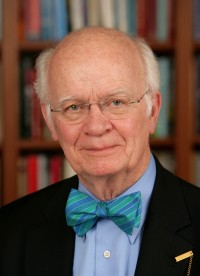Trillionths

In a review of Stephen Hawking's The Grand Design (subscription
required), physicist Steven Weinberg criticizes Hawking for concluding that "we
have no free will":
[Hawking] attributes the
illusion of free will to the fact that a human being contains about a thousand
trillion trillion particles, so that as a practical matter it is impossible to
predict what people will do.
This is a sign, says Weinberg, that Hawking
"overestimates the ability to answer deep philosophical questions." (Meanwhile,
practical souls may wonder how many particles will disappear in a good
weight-loss program--"I am down to 999 trillion trillion particles," etc.)
Elsewhere, fellow physicist Brian Greene,
while being interviewed about his book on "multiverses," suggests that "our
'everything' [i.e., our universe] may be just one enormous expanding bubble in
a gigantic cosmic bubble bath of universes." Some find this uncomfortably large
and seek refuge in our own cozy universe, our neighborhood. NASA helped us in
January with reference to an object that traveled 13.2
billion light years to reach the Hubble telescope. It is "the most distant
object ever seen in the universe."
Just as Weinberg, an assertive atheist, believes that
science cannot answer deep philosophical questions, Gelernter observes this:
For many in the world, religion
can provide meaning. Why are we here? What's our purpose? But for explaining
physical processes, science alone has proved to be our most trustworthy guide.
If all the numbers from Weinberg and Gelernter are
staggering, we might go in a cozier direction and look in on an infant--or part of an infant, her brain. David
Brooks, writing on the conscious and unconscious mind,
gives us a little peek inside one. Quoting a Caltech scientist, Brooks reports
the following:
We have a hundred billion
neurons in the brain; infants create as many as 1.8 million neural connections
per second; a mere sixty neurons are capable of making ten to the eight-first
possible connections, which is a number ten times as large as the number of
particles in the observable universe.
Give that kid a second second and you will start getting
into real numbers, real possibilities.
Brooks goes on to explain how "flourishing" takes place in
the face of all the complexity:
It happens sometimes while
you're . . . listening to music or lost in a story, or to some people when they
feel enveloped by God's love. And it happens most when we connect with other
people.
Many religious people believe that their response to
challenges should be proving the existence (or disproving the nonexistence) of
God. But on the crucial bridge where scientists and religious thinkers meet--a
place in which we all have a stake--the most promising dialogue occurs when all
sides know their limits and thus are able to transcend them, being humbly lost
in wonder, content with but curious about mystery, and ready to re-engage what
the provinces of scientists and theologians have in common.





